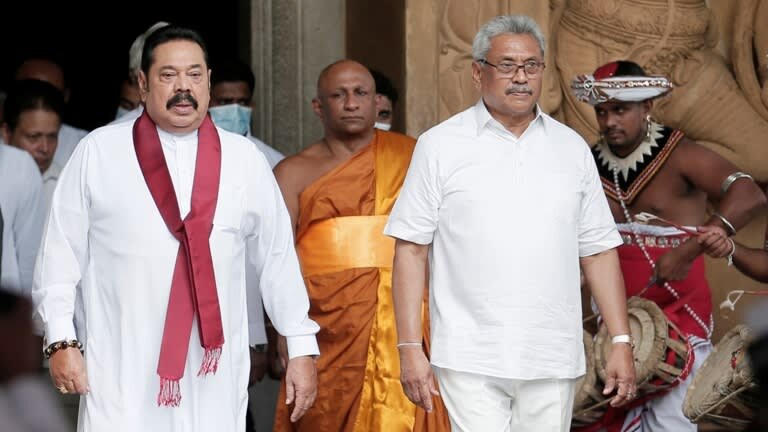Hawzah News Agency - Predominantly Buddhist Sri Lanka's ultranationalist government is forcing families of the country's Muslim and Christian minorities to abandon their faith-based burial rites for relatives who die of COVID-19 -- consequently inviting fresh international scrutiny of the nation's already troubled human rights record.
As the country's death toll from the pandemic inches toward 200, the government of the hawkish President Gotabaya Rajapaksa is sticking to a policy backed by hard-line allies from the majority Sinhala-Buddhists, the political constituency that helped Rajapaksa secure two thumping electoral mandates over the past year. The official policy is for COVID-19 victims to be swiftly cremated. It has sent religious minorities already grieving for lost kin into deeper anguish.
The youngest victim was a 20-day-old Muslim baby who was forcibly cremated against the parents' wishes. An estimated 80 Muslims have died of the coronavirus, with their surviving family members suffering the same indignity. The pandemic has infected close to 40,000 people since the first case was detected on the Indian Ocean island early this year.
The policy "has led to so much agony within the community at a time when they have to grieve for someone who has died," said Shreen Saroor, a leading Muslim women's rights activist. "The relatives are caught in a dilemma of having to sin and having so much guilt for being part of the sin because of the cremation."
The anti-burial measures endorsed by Rajapaksa, who enjoys autocratic powers following a constitutional amendment, have been defended on two grounds that have made Sri Lanka an outlier in the global response to the deadly pandemic. One rationale is that burying COVID victims could result in the virus spreading in the soil and contaminating the country's water table. The other: Muslims will use the dead bodies in graves as a "biological weapon."
Sri Lanka's stance flies in the face of the international consensus among medical scientists and virologists regarding the last rites of COVID victims. The World Health Organization, the Geneva-based U.N. body, has shaped international opinion with guidelines that state the choice of cremation or burial of a COVID victim is a cultural decision. Over 180 of its members have endorsed this.
Not surprisingly, there are emerging signs that Sri Lanka will pay a diplomatic price for Rajapaksa's efforts to weaponize COVID. Colombo-based embassies from the world's Muslim countries "are monitoring the burial ban closely and gathering information," said a diplomatic source from an Asian mission in the Sri Lankan capital.
The embassies have taken a cue from the Organization of Islamic Cooperation, a Saudi Arabia-based 57-member bloc that has issued three statements condemning Sri Lanka's forced cremation policy.
Likewise, Western diplomatic missions have stood behind statements issued by U.N. officials about the Rajapaksa government hounding religious minorities in their hour of grief. "I fear that not allowing burials is having a negative effect on social cohesion and, more importantly, could also adversely impact the measures for containing the spread of the virus as it may discourage people to access medical care when they have symptoms or history of contact," wrote Hanaa Singer, the U.N. Resident Coordinator in Sri Lanka, in a letter to the Rajapaksa government in November.


Your Comment